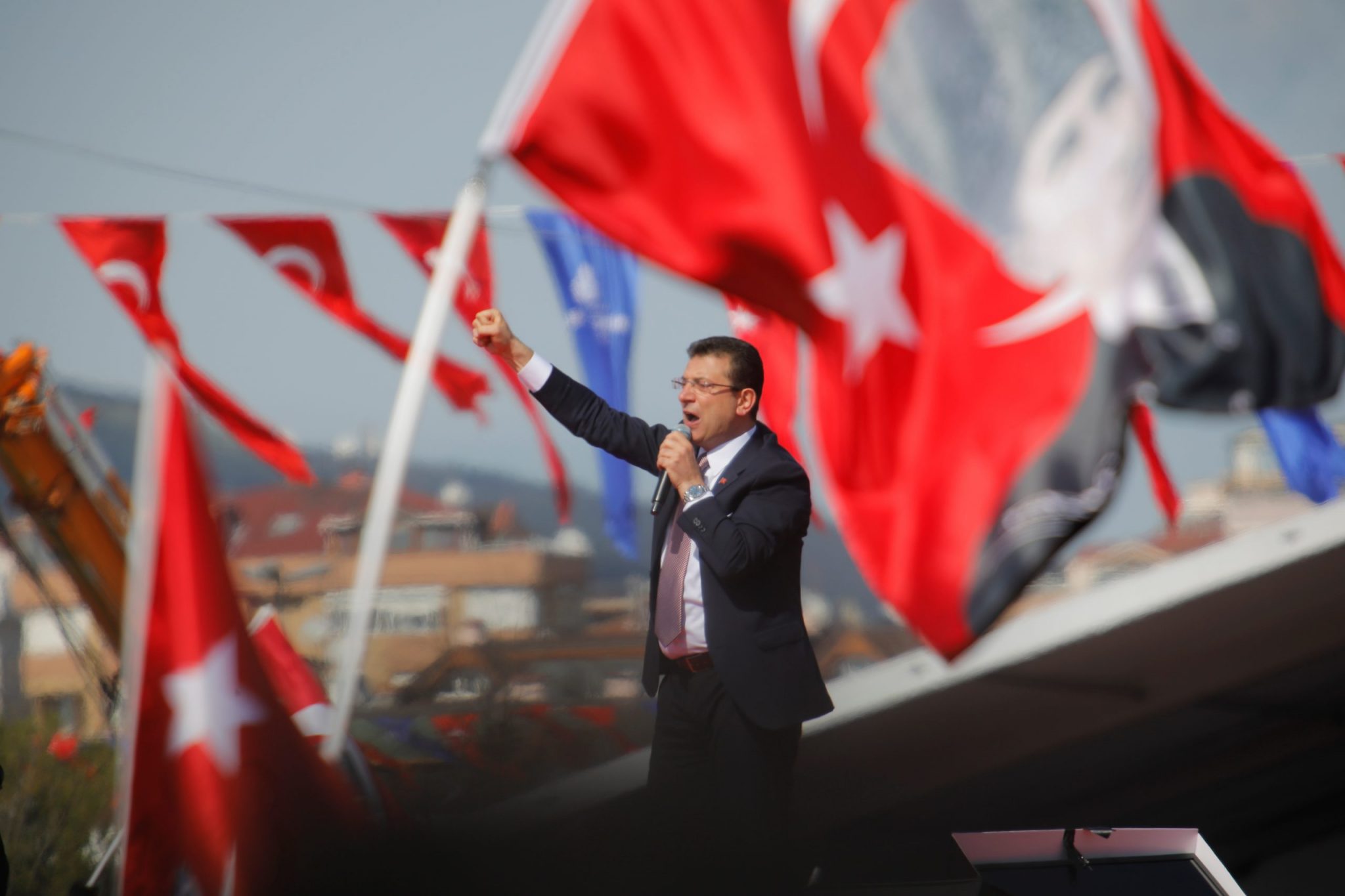Earlier today, a court in Turkey sentenced the sitting mayor of Istanbul, Ekrem İmamoğlu, to two years and seven months in prison for calling members of the Supreme Election Council “idiots” in 2019 after they vacated his first election to the office.
To understand the significance of today’s step, it’s essential to appreciate recent authoritarian trends in Turkish politics, as well as the unusually precious position in which Turkish President Recep Tayyip Erdoğan and his ruling Justice and Development Party (AKP) find themselves.
Erdoğan and the AKP have governed Turkey for 20 years, during which time the country initially saw tremendous economic growth before increasingly backsliding on key democratic indicators. The elections that the AKP has won in recent years have been described as “free, but not fair” by international observers, meaning that voters freely choose between meaningfully different parties and candidates, but campaigns are conducted in an environment crafted to strongly favor the incumbent party. In particular, the government has used regulation of public media, and the consolidation of most private media into the hands of a small number of Erdoğan allies, to turn most news organizations into cheerleaders of the regime.
Erdoğan’s regime has also used executive influence over the judiciary to ensure that the courts too favor the incumbent party, often allowing the prosecution of opposition politicians, activists, and even journalists for vague crimes like “insulting state officials,” “spreading disinformation,” and “undermining public safety.” Such prosecutions took place under previous governments as well, but Erdoğan’s AKP has been particularly diligent and effective in recent years at consolidating this into a whole-of-government approach that, combined with his genuine popularity for much of his time in office, has ensured that his opposition stays weak and fractured.
Since 2018, Turkey’s economy has been in a downward spiral, with the lira’s value collapsing and inflation eviscerating the country’s middle class. Some voters had been willing to trade a degree of political freedom for economic growth, but given that this economic distress is driven by Erdoğan’s unorthodox monetary policies, this trade-off is increasingly untenable, and the government faces its highest ever unpopularity.
Cue the entrance onto the political stage of Ekrem İmamoğlu, who was a relatively unknown opposition politician before he won an upset victory in March 2019 to be Istanbul’s new mayor. The upset was frustrating and humiliating for Erdoğan, who served as mayor of Istanbul himself prior to becoming prime minister, and who views the city as his political home turf. In response to İmamoğlu’s surprise victory, the Supreme Election Council, dominated by AKP loyalists, overtured his victory on the basis of thin allegations of fraud. İmamoğlu was removed from office pending a rerun of the election. Though he won the first election in March by only 15,000 votes, he won the rerun by a whopping 800,000 votes, many coming from voters who had previously voted against him but were outraged by the shenanigans of the Supreme Election Council. İmamoğlu himself referred to councilmembers as “idiots” in remarks to journalists, leading to charges against him and a more than two-year sentence handed down today, which also includes a ban on political activity in the future.
This sentence reflects a new escalation of the same criminalization of politics and journalism that the regime has engaged in for years, and it may provoke a backlash from the Turkish people. İmamoğlu has been seen as a viable opposition candidate for next year’s presidential election, and if he is truly barred from participating, Turkey’s elections will have crossed a line from “free but unfair” to “unfree and unfair.” Ironically, these same tactics used by Erdoğan today were used against him when he was mayor of Istanbul. He was briefly jailed in 1999 for having read a poem that was deemed subversive by state authorities. The backlash against this affront to liberal democracy helped propel him to the prime minister’s office only a few years later.
For now, İmamoğlu remains free and in office pending appeal. Historically, opposition parties have had difficulty agreeing on a candidate to unify behind to unseat Erdoğan. If Erdoğan successfully uses political prosecutions in conjunction with other authoritarian tools to cling to power next year despite historic unpopularity, he may deal another body blow to what’s left of Turkish democracy. If this prosecution turns İmamoğlu into a political martyr, however, the AKP’s authoritarian overreach may strengthen its rivals more than weaken them.
The views expressed in GMF publications and commentary are the views of the author alone.





